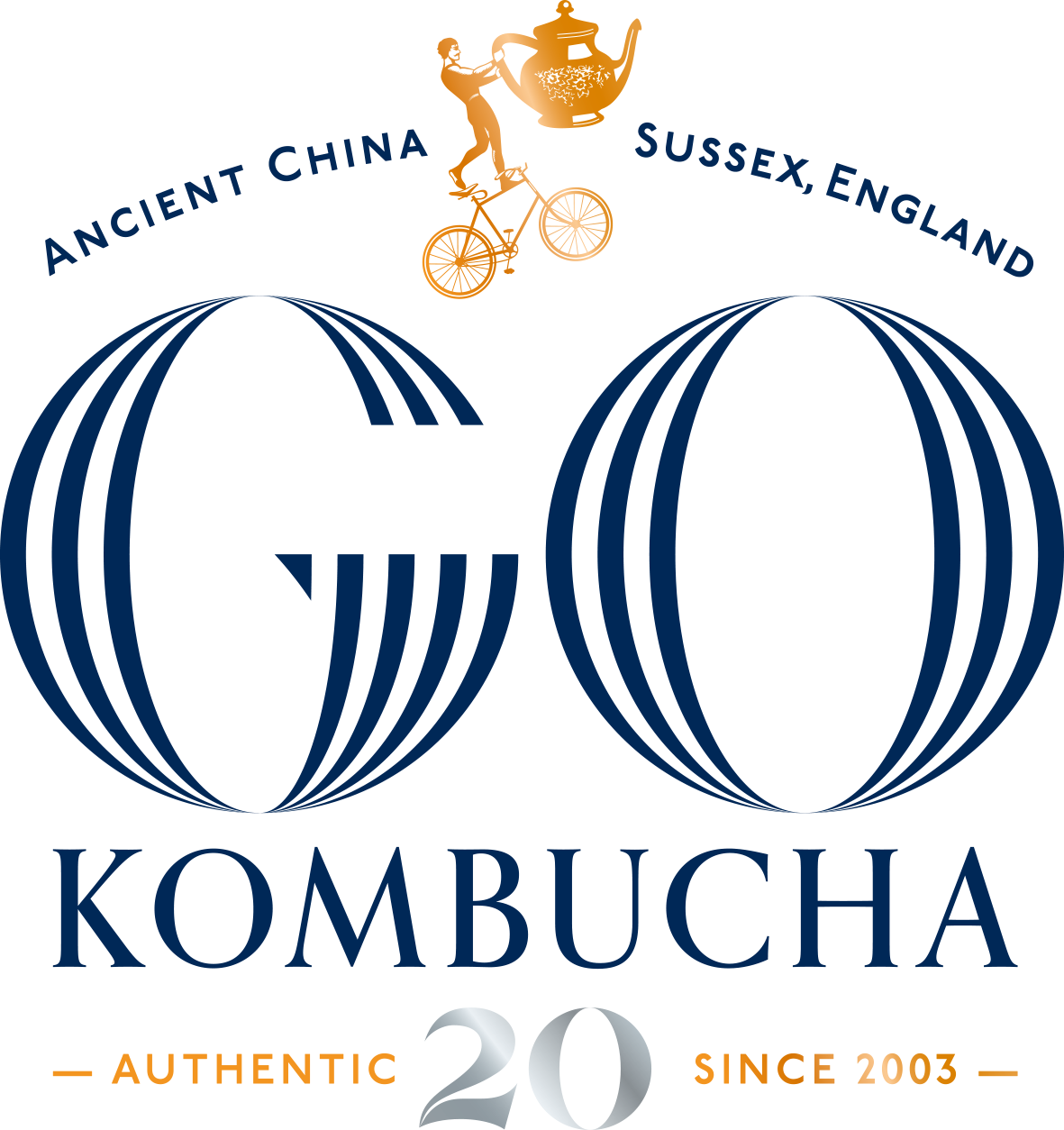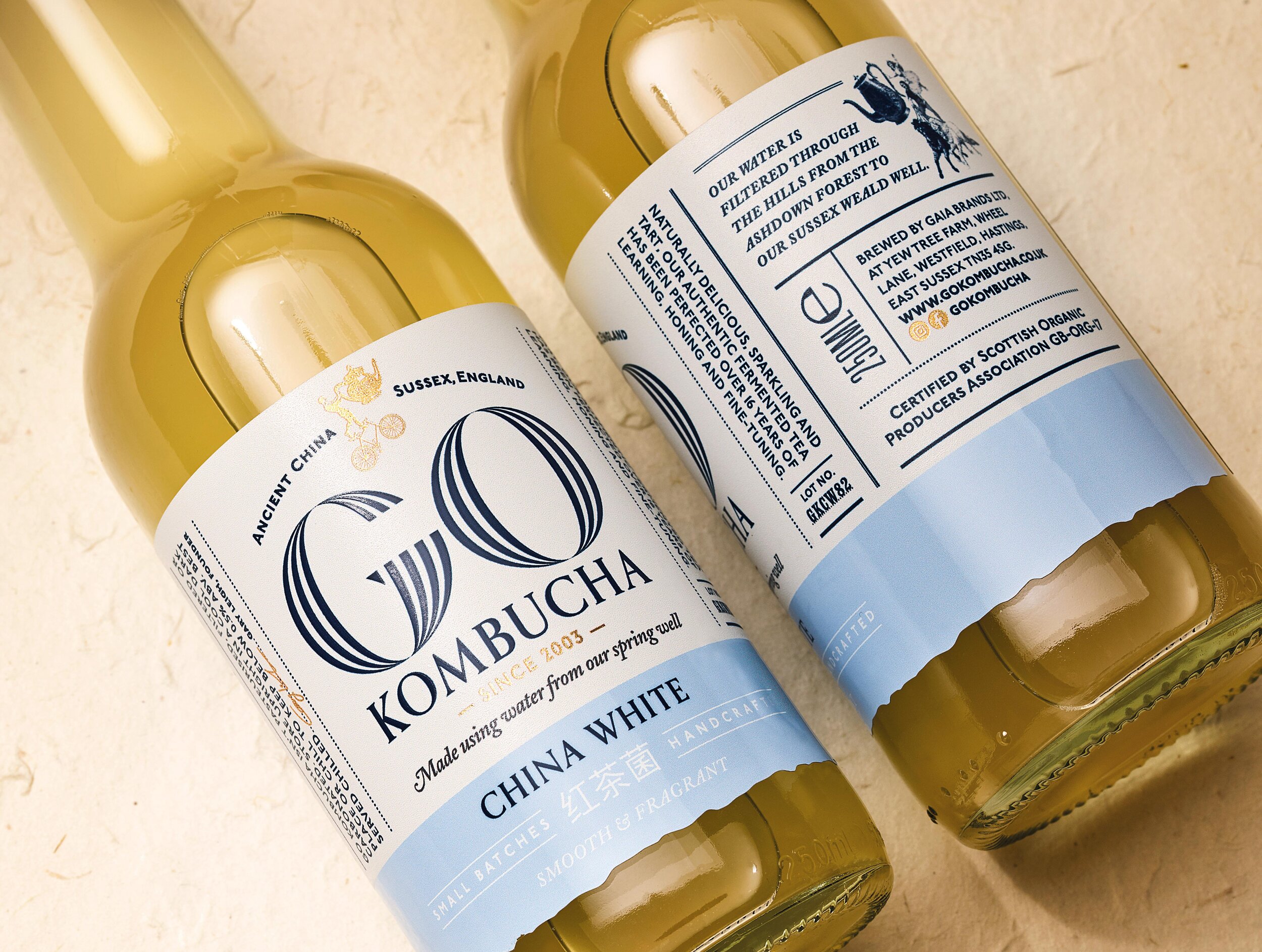OUR STORY
IT ALL BEGAN in January 2003, on a visit to a rickety boat house moored by the Thames in Hampton Wick near Teddington, Middlesex…
Since 1995, friends had been brewing a strange fermented tea in their galley kitchen and serving it in champagne flutes to visitors and selling at local fetes.
Discovering real kombucha tea was like stumbling upon the Holy Grail of soft drinks; the antidote, panacea and number one remedy to industrialised, “hyper-processed” drinks, boasting 3 key benefits:
a) Far lower in sugar than standard soft drinks and fizzy sodas;
b) Alive with gut-friendly microorganisms, and;
c) A genuinely satisfying sober alternative to wines, beers, even champagne.
Perceiving a time when a more enlightened attitude to drinking would be the norm, and no longer regarded as faddish or whacky, I felt compelled to take a punt and loaned the start-up capital to enable this ancient ‘elixir’ to be brewed on a larger scale, and real kombucha based on the traditional small batch brewing method was authentically revived for the UK’s independent whole food sector.
Like beer brewing, the art of making the best tasting, finely-balanced kombucha is a craft honed and finessed over years of learning and fine-tuning. For 18 of the last 22 years we’ve perfected our time-honoured, small batch brewing method at a family vineyard in the tranquil Sussex countryside 6 miles from Hastings; a part of the Weald Basin recognised as an area of outstanding natural beauty (above).
From our on-site well (below) we pump spring water purified via a network of underground streams that course through the rolling hills of Sussex – from rain water run-off into the sand strata from an area of the Ashdown Forest in the west of the county all the way to Rye in the east - directly into our brewery, yielding an unrivalled ‘benchmark kombucha’ with body, depth, balance and character.
Gary Leigh, GO Kombucha Founder
Our well was dug 20 feet below ground around 1890 to supply water to the original 2000 acre Yew Tree Farm (now Carr-Taylor Vineyard), then owned by the Bowes-Lyon family, the family of Queen Elizabeth II’s mother (who is rumoured to have done some of her courting at the farm!). Our water originates from Ashdown Forest 34 miles away and is filtered and purified through hills of fine Ashdown sand. The exposed brickwork opens up to a drive shaft connected to a crank shaft powering a bucket pump at the well base. A 19th Century engineering masterpiece!
OUR LIVING WATER
Metabolism is the chemical reaction that occurs in all living things to maintain life, and no metabolistic process can occur without the presence of water. Water in its most natural form enables all metabolistic processes to work efficiently and effortlessly.
There is no better base for making the best possible kombucha than local spring water in its pure state because, like the kombucha culture itself, unspoiled spring water is imbued with the earth’s electromagnetic “life force”.
Fresh spring water is also infused with life-sustaining minerals like calcium, magnesium, potassium and other trace minerals. Industrially-treated mains water, by comparison, contains traces of chemical and industrial waste including oestrogens, nitrates, pesticides, heavy metals, microplastics, chlorine and, in 10% of the UK, fluoride, pulling the water’s structure out of alignment.
Compared to pure spring water, treated tap water is chaotically out of resonance with the earth’s bio-frequency (a.k.a. Schumann Resonance) and the kombucha culture’s living microbes, in turn affecting the process of fermentation and often leading to hazardous results.
Even using advanced filtering systems, commercial brewers invariably resort to artificial processes to stabilise their concoctions for scale, safety and stability.
Resonance between the water and kombucha culture will result in a symbiotic brew, thereby yielding a perfect balance between the bacteria and yeasts for the finest possible, ‘love-at-first-sip’ kombucha.
• Read more about the world of GO Kombucha on THE BOOCH BLOG.




